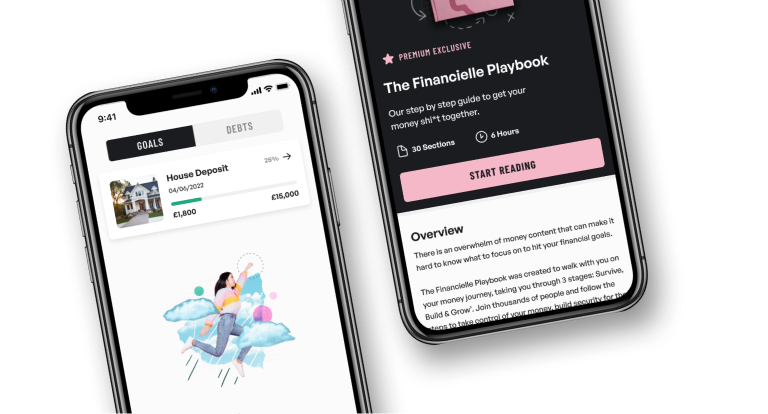What You Need to Know When You’re Saving For a House Deposit

Within the Financielle community, a big goal for many is buying their first home. You may be buying alone, buying with a partner or just planning for someday. Whatever your goals, it’s important to find your own ways of saving for a house deposit. In this article, we’re going to be talking about the process of saving for a house deposit.
In the Financielle Playbook, we place this step after becoming debt-free and building a solid emergency fund. This is because buying a house without strong financial foundations can be a painful recipe for disaster.
So, you’re debt-free, you have 6 months’ worth of expenses behind you in the bank and you’re ready to start piling up the cash for your house deposit. Let’s get into it!
So how much should I save for a house deposit?
You’re going to need to save a minimum of 10% of the purchase price of the home for the deposit, plus you need to allow money for all the extras that will be needed including:
- Survey Fees (basic survey could be included in your mortgage)
- Stamp Duty* (*note current exemptions – see this UK government guidance here)
- Solicitor / Conveyancer Fees (can range between £500 – £1000 on average – more if it is a complicated purchase)
- Mortgage Fees (your mortgage could be fee-free or have fees)
- Removal Costs
I now have a savings goal total; how do I actually start saving?
Whatever your savings goal number, it is likely to be higher than anything you’ve ever saved before. Let’s say your goal is £20,000 (£15,000 deposit plus fees).
Make the goal visible
Make a vision board of your goal – whether that be a physical cut and stick one or a digital one on your computer or phone home screen, or even make a Pinterest board of your ideal home. Think about what it will look like, what will the garden be like? What will the décor be like? Where will it be? Imagine yourself turning the key to the house on the day you complete the sale – you need to think about how this will feel. This helps to make the goal more real for you and help you make it a priority in your life.
Do the maths
So, if you follow The Financielle Playbook method, you will know your Excess (which is what is left after your outgoings are taken from your income). You need to take your goal figure and divide it by your monthly Excess, and this is the number of months it will take you to reach your goal. Every month, you need to transfer the Excess at the beginning of the month to a separate savings account. Now if this amount of time is too long for you and your dreams, then we need to do a couple of things!
Squeeze Your Budget
Now to accelerate working towards your goal, you need to squeeze your budget by going through line by line and considering how you may reduce your outgoings to increase your Excess. What are you willing to sacrifice to bring you closer to your goal?
Increase Your Income
Your second variable that brings the goal closer is to increase your income – whether that is at your main role or whether it is picking up extra jobs if you can, such as delivering pizza or working in a supermarket on weekends. It could also be done by selling things around the house on Facebook or eBay – everything goes towards your income total and remember; any Excess goes into the separate savings account.
Track Your Progress
Using a simple tracker to track your progress will mean that you gain momentum when you see progress and the small wins, such as £50 or £100 take you closer towards your goal. Printing off a goal tracker, putting it on the fridge and colouring each square in as you put the effort in to save will help you visibly see progress and motivate you to finish your goal. See here a free download of a House Deposit Savings Goal Tracker you could use for the amount you need – with 50 spaces to colour in, just divide the amount by the number of spaces and that’s how much each square is worth.
The skills you learn in paying down debt and building up an emergency fund are exactly the same – and remember without consumer debt payments, there is more of your income to throw into savings as your Excess. And this can be applied to any goal – a trip of a lifetime, campervan, garden office, new car.
Join our free community to pick up some extra tips and tricks when it comes to saving for a house deposit. You can even be held accountable by our lovely community. Join here!
Happy saving!









